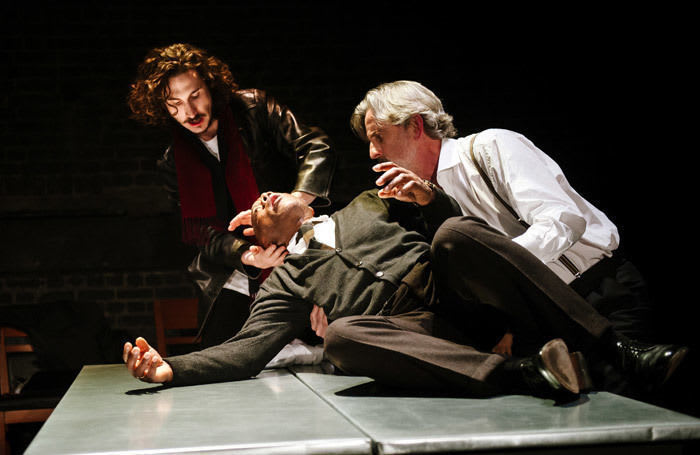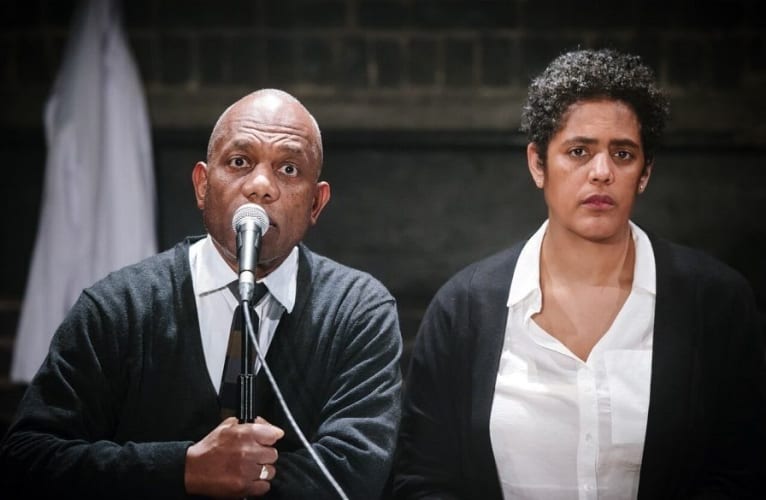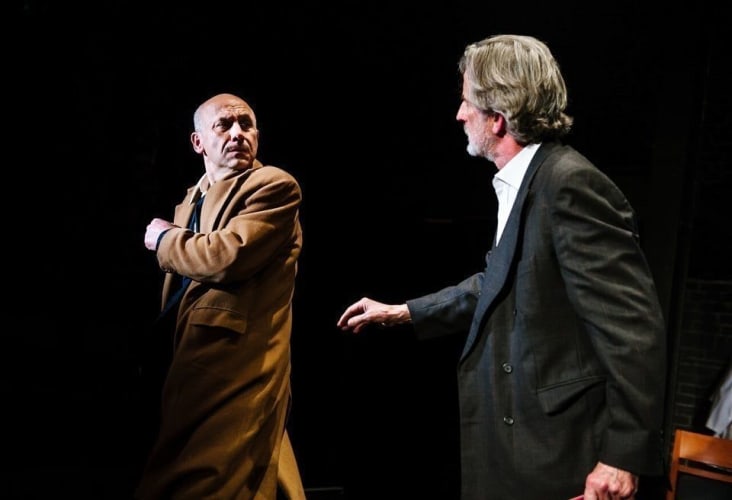Albert Camus’s novel The Plague caught something of the shocked weariness of those emerging from the trauma of the Second World War. There is a sense of loss and emotional numbness as it reflects back on a period of horror that the novel distances by turning it into a story of a town struck by plague.
It traces the different and changing responses to the plague. There is the selfless dedication of the doctor, the profiteering of a black market racketeer and the understandable search by some individuals for an individual escape. The message is positive about what people can do in terrible situations and hopeful about the future.
Neil Bartlett’s stage adaptation retains the language, most of the characters and much of the mood of the book. The play begins as some sort of inquiry with five people sitting at tables before three microphones.
Each of the five carries a notebook or sheets of paper from which they read their testimony. The story is told from the point of view of Dr Rieux, played with fine sensitivity by Sara Powell.
The often hesitant reports are sometimes paused so that characters can hear questions the audience does not hear. They tell of the relentless onset of the plague, the initial failure of the authorities to respond and then the closure of the town under preventative quarantine.
The memories quickly and repeatedly become short dramatised scenes, such as a meeting of doctors and a discussion between Dr Rieux and a visiting journalist (Billy Postlethwaite).
Occasionally, the entire cast becomes a chorus, each speaking perhaps a line or two. This very effectively generates an unsettling mood. Such sequences also remind us how much this trauma is a collective event.
Such moments along with the strong cast of actors and a thoughtful script make this a play worth seeing. But it doesn’t really work as a play.
Framing the story as an inquiry makes it quite static. There is no clash of ideas or even much at stake to generate any tension. We know what is coming and it happens with no surprises. First the rats die. Then lots of people die. Then the plague ends. The play gives us no reason to care how these things happen.
It doesn’t help that characters are only minimally sketched. The character Mr Grand (Burt Caesar) is stolid and kind. Dr Rieux is principled and hardworking. Mr Cottard (Joseph Alessi) is a money-grabbing profiteer.
We don’t really go much beyond these attributes in contrast to the book where for instance Cottard is depicted quite sympathetically for all his villainy.
Inevitably, the play selects what it can cover but this removes the difference between the characters including their motivation. Jean Tarrou (Martin Turner) is the first to take the initiative in organising voluntary health teams to cover the town of thousands of people.
Camus explains Tarrou’s confident and principled organisational ability through a back-story Tarrou gives to Rieux in a moment of intimate friendship. It includes his father’s behaviour, a long campaigning activism against the death penalty and his membership of a political organisation. The absence of all of this makes him seem little different from the other characters.
The play doesn’t work dramatically and can seem very superficial but it does give us a flavour of a great novel.
Dr Rieux gives us one of the key messages of both the book and the play when he tells us that “the plague bacillus never actually dies... It can lie dormant for generations... can bide its time... until one day... it once more rouses its rats and sends them forth to die in some unsuspecting city.”
When that happens, Tarrou says, “there are pestilences and there are victims—and as far as possible one must refuse to be on the side of the pestilence.”


